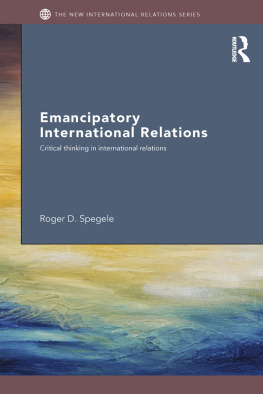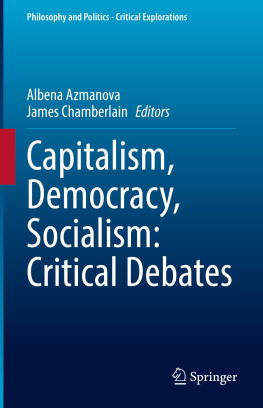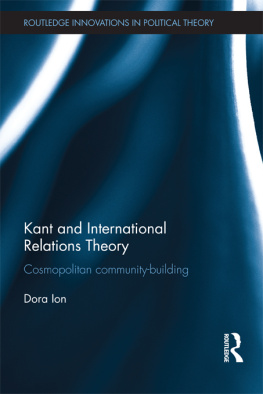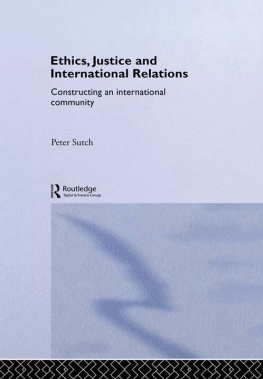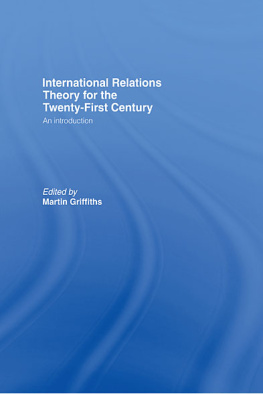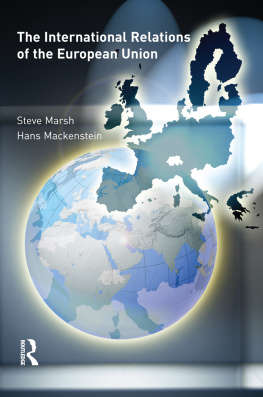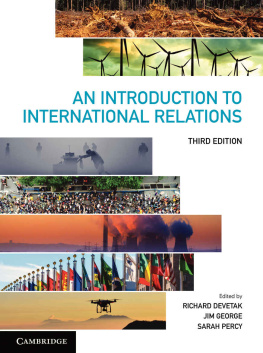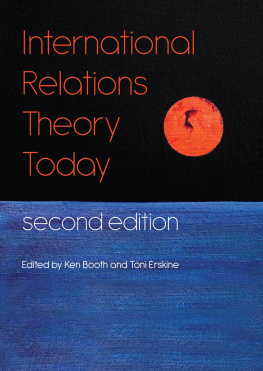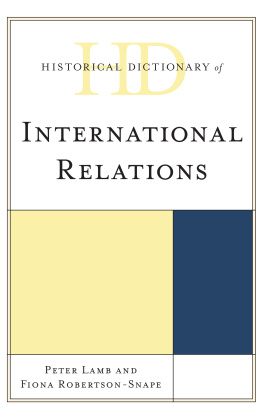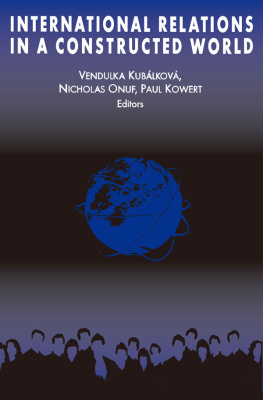Emancipatory International Relations
International relations theory is witnessing a veritable explosion of works within the areas of modernism and postmodernism, yet there has been no attempt to compare these theories and their sources according to a common criterion or logical form. Roger Spegele argues that, while these pioneering, imaginative and exciting theoretical works are disparate, they also share a common thread that seeks to express emancipatory goals for international relations.
This book provides an in-depth critical study of this genre of theorizing that he names Emancipatory International Relations. Spegele develops a framework to help the reader understand both the differences and commonalities in modernist and postmodernist emancipatory thinking in international relations. He critically analyzes modernist theories, discourses and narratives, postmodernist theory and practice, feminist emancipatory discourses and postmodernist international discourse and concludes by examining the coherence, viability and plausibility of emancipatory discourses in international relations, whether modernist or postmodernist.
This challenging and innovative volume will be of interest to students and researchers of international relations.
Roger D. Spegele has a PhD from the University of Chicago, USA, and is the author of Political Realism in International Theory (Cambridge University Press). In his academic career he has specialized in international politics, international relations theory and ethics.
The New International Relations
Edited by Richard Little, University of Bristol, Iver B. Neumann, Norwegian Institute of International Affairs (NUPI), Norway and Jutta Weldes, University of Bristol.
The field of international relations has changed dramatically in recent years. This new series will cover the major issues that have emerged and reflect the latest academic thinking in this particular dynamic area.
International Law, Rights and Politics
Developments in Eastern Europe and the CIS
Rein Mullerson
The Logic of Internationalism
Coercion and accommodation
Kjell Goldmann
Russia and the Idea of Europe
A study in identity and international relations
Iver B. Neumann
The Future of International Relations
Masters in the making?
Edited by Iver B. Neumann and Ole Wver
Constructing the World Polity
Essays on international institutionalization
John Gerard Ruggie
Realism in International Relations and International Political Economy
The continuing story of a death foretold
Stefano Guzzini
International Relations, Political Theory and the Problem of Order
Beyond international relations theory?
N.J. Rengger
War, Peace and World Orders in European History
Edited by Anja V. Hartmann and Beatrice Heuser
European Integration and National Identity
The challenge of the Nordic states
Edited by Lene Hansen and Ole Wver
Shadow Globalization, Ethnic Conflicts and New Wars
A political economy of intra-state war
Dietrich Jung
Contemporary Security Analysis and Copenhagen Peace Research
Edited by Stefano Guzzini and Dietrich Jung
Observing International Relations
Niklas Luhmann and world politics
Edited by Mathias Albert and Lena Hilkermeier
Does China Matter? A Reassessment
Essays in memory of Gerald Segal
Edited by Barry Buzan and Rosemary Foot
European Approaches to International Relations Theory
A house with many mansions
Jrg Friedrichs
The Post-Cold War International System
Strategies, institutions and reflexivity
Ewan Harrison
States of Political Discourse
Words, regimes, seditions
Costas M. Constantinou
The Politics of Regional Identity
Meddling with the Mediterranean
Michelle Pace
The Power of International Theory
Reforging the link to foreign policymaking through scientific enquiry
Fred Chernoff
Africa and the North
Between globalization and marginalization
Edited by Ulf Engel and Gorm Rye Olsen
Communitarian International Relations
The epistemic foundations of international relations
Emanuel Adler
Human Rights and World Trade
Hunger in international society
Ana Gonzalez-Pelaez
Liberalism and War
The victors and the vanquished
Andrew Williams
Constructivism and International Relations
Alexander Wendt and his critics
Edited by Stefano Guzzini and Anna Leander
Security as Practice
Discourse analysis and the Bosnian War
Lene Hansen
The Politics of Insecurity
Fear, migration and asylum in the EU
Jef Huysmans
State Sovereignty and Intervention
A discourse analysis of interventionary and noninterventionary practices in Kosovo and Algeria
Helle Malmvig
Culture and Security
Symbolic power and the politics of international security
Michael Williams
Hegemony & History
Adam Watson
Territorial Conflicts in World Society
Modern systems theory, international relations and conflict studies
Edited by Stephan Stetter
Ontological Security in International Relations
Self-identity and the IR state
Brent J. Steele
The International Politics of Judicial Intervention
Creating a more just order
Andrea Birdsall
Pragmatism in international relations
Edited by Harry Bauer and Elisabetta Brighi
Civilization and Empire
China and Japans encounter with European international society
Shogo Suzuki
Transforming World Politics
From empire to multiple worlds
Anna M. Agathangelou and L.H.M. Ling
The Politics of Becoming European
A study of Polish and Baltic post-Cold War security imaginaries
Maria Mlksoo
Social Power in International Politics
Peter Van Ham
International Relations and Identity
A dialogical approach
Xavier Guillaume
The Puzzle of Politics
Inquiries into the genesis and transformation of international relations
Friedrich Kratochwil
The Conduct of Inquiry in International Relations
Philosophy of science and its implications for the study of world politics
Patrick Thaddeus Jackson
Arguing Global Governance
Agency, lifeworld and shared reasoning
Edited by Corneliu Bjola and Markus Kornprobst
Constructing Global Enemies
Hegemony and identity in international discourses on terrorism and drug prohibition
Eva Herschinger
Alker and IR
Global studies in an interconnected world
Edited by Rene Marlin-Bennett
Sovereignty between Politics and Law
Tanja Aalberts
International Relations and the First Great Debate
Edited by Brian Schmidt
China in the UN Security Council Decision-making on Iraq
Conflicting understandings, competing preferences
Suzanne Xiao Yang
NATOs Security Discourse after the Cold War
Representing the West
Andreas Behnke

